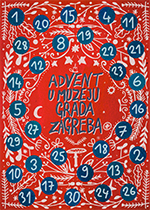Radical changes were introduced when the Independent State of Croatia was proclaimed and the Wehrmacht marched into Zagreb, on April 10, 1941. The rapture at the creation of an independent state expressed during the grand welcome accorded to the new head of state, Dr Ante Pavelić, was soon to be erased by the Treaties of Rome which gave great parts of the national territory to Italy, by the racial and religious discrimination of which the victims were the Jews and the Serbs, and the reign of terror aimed at all those who did not support the ideas of the Ustasha movement, in particular at the communists. The terror was answered by the resistance movement, which found armed expression in the partisan actions of the communists (attack on the main post office, and assassination of an Ustasha student squad at the Botanical Garden, 1941). Reprisals in the guise of court martial verdicts were very common, and public hangings became an everyday occurrence from 1943 on. All these troubles, which not even a considerable upsurge in culture and the songs of Vlaho Paljetak could palliate, were accompanied by food shortages. Bread had been rationed since 1941; coupons for goods and food products were brought in from 1942, and the city’s parks were turned into allotments.
The takeoff of city building marked by the completion of Rebro Hospital and the beginning of the Ante Starčević worker’s estate in Dubrava, where the tramlines arrived in 1942, dried up because of economic ills. The city was governed by mayors (Jozo Dumandžić, Ivan Werner and Eugen Starešinić) who were hampered in their work by the central government.
In 1941 the National (“red”) Assistance network was set up; this was the biggest anti-fascist organisation. Parallel government agencies, the National Liberation Committees, were set up, organising departures for the partisans; thus the 10th Zagreb Corpus was formed under the aegis of the anti-fascist army. The big shelter under the Upper Town was completed because from the beginning of 1944 Zagreb suffered more and more air-raids. The need to look after refugees resulted in the formation of the regime’s Assistance, and the bombing in that of the Civil Defence. The downfall of the Third Reich led to the fall of the Independent State of Croatia as well; in May 1945 the civilian government was handed over to the National Defence, which greeted units of the 2nd Army in a deserted Zagreb on May 8, 1945.
On May 6, 1945 the previous heads of the government left Zagreb. The withdrawal of the military units and some civilians to the west went on for days; they hoped to put themselves under the protection of the Allies in Carinthia. At the end of the Second World War a crime was committed in Bleiburg against the Croatian people, which set off on its “way of the cross”.
Ivan Ružić

